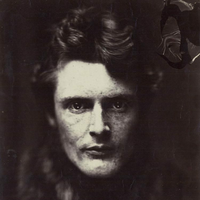Adonis
The gods did love Adonis, and for this
He died, ere time had furrowed his young cheek.
For Aphrodité slew him with a kiss.
He sighed one sigh, as though he fain would speak
The name he loved, but that his breath grown weak
Died on his lips. So died the summer breeze;
And all the wood was hushed a minute’s space,
Where I stood listening underneath the trees,
Until a wood—chat from her secret place
Chirped in an undertone, ‘He is not dead,
Not dead, for lo! the bloom upon his face
Is ruddy as the newly—blossomed rose
Which even yet is woven round his head.
But sleep, more sweet than waking dream, doth close
The laughter of his eyes. He is not dead.’
Alone in that fair wood the livelong day
And through the silent night I watched him near.
But in the morning he was fled away,
When broke the dawn upon me cold and clear.
I looked within the thicket where he lay;
And lo! the sod, which he had pressed in death,
Was white with blossoms, scattered from the may,
Which made the thick air sweet with their sweet breath.
But he was gone; and I went o’er the heath,
Clutching, like one distraught, the dim air grey
With dawning,—for a voice encompassed me,
Crying, 'Fair boy, thy youth was but a span,
Yet did it circle in eternity.
Thy epic was accomplishèd. A man
Fills but the measure of his destiny,
And thine was all complete. Ere age began
To mar the royal palace of thy youth
With upper storeys of less perfect plan,
Death, kindly Death, filled with immortal ruth,
Took back the trowel from the builder’s hand,
And wrote his 'fecit’ on thy work of truth.’

